What are Wood Pellet Mills?
Wood pellet mills are specialized machinery used for producing wood pellets, a type of biofuel made from compressed organic matter or biomass. These pellets are commonly used for heating systems, power generation, and as a renewable energy source. The machinery serves an essential role in the recycling of wood waste and byproducts, such as sawdust, wood shavings, and agricultural residues like rice husks and straw, transforming them into a uniform, dense, and energy-rich pellet form.
The primary users of wood pellet mills are businesses in industries like agriculture, energy production, and manufacturing. They also serve the needs of smaller-scale operations such as local farms and home users who have a supply of biomass materials and wish to produce their own fuel pellets for heating or other purposes.
The operation of a wood pellet mill relies on several key principles. Biomass materials are first ground into a fine powder using equipment like hammer mills. This powder is then dried to reduce its moisture content to an optimal level for pelletization. The dried biomass is fed into the wood pellet mill where it is pressed through a die containing a series of holes. The pressure and friction generated in this process heat up the material, causing lignin, a natural polymer found in wood, to act as a glue that binds the particles together. The pellets that emerge from the other side of the die are cut to a uniform size and left to cool down before they can be stored or transported for use.
Wood pellet mills come in various sizes and capacities to match different production requirements. Small-scale mills cater to individual users or small businesses, while large-scale mills are designed for industrial operations requiring significant output. The efficiency and automation level of these mills can vary widely, with some models offering advanced features such as remote monitoring and control.
Types of Wood Pellet Mills
The market offers a diverse range of wood pellet mills tailored to meet specific production needs and scale. Here are some common types:
Flat Die Pellet Mills: These mills employ a flat die with multiple holes through which material is forced by roller presses. They are generally more suitable for small-scale production or home use due to their simplicity and lower capacity.
Ring Die Pellet Mills: Distinguished by their high efficiency and capacity, ring die pellet mills are favored for commercial and industrial applications. These machines feature a cylindrical die with radial holes and are capable of producing pellets on a continuous basis, making them ideal for large-scale pellet production.
Mobile Pellet Mills: Designed for flexibility, mobile pellet mills can be transported to various locations where biomass materials are available. They make on-site production possible, reducing transportation costs for raw materials.
Electric Pellet Mills: Utilizing electrical power for operation, these mills are commonly used where electricity is readily available at lower costs. They offer cleaner operation compared to diesel-powered units but require a stable power supply.
Diesel Pellet Mills: These mills are equipped with diesel engines, making them suitable for areas with limited access to electricity. Their portability allows them to be used in remote locations.
Each type has its own common use cases based on the volume of production required, the type of raw material processed, the available infrastructure (like power supply), and the need for portability.
How to choose Wood Pellet Mills
Selecting the right wood pellet mill involves careful consideration of several factors:
Production Scale: Assessing your production needs is crucial; smaller operations may benefit from flat die mills while larger commercial ventures might require the higher output of ring die pellet mills.
Raw Materials: The type of biomass material you plan to use can influence your choice since different machines handle various materials differently in terms of efficiency and wear.
Power Source Availability: If your location has reliable access to electricity, electric pellet mills could be more cost-effective; otherwise, diesel-powered options might be necessary.
Automation Level: Depending on your operational capacity and labor availability, you might opt for more automated machines that save on manpower but may come at a higher cost.
Portability Requirements: If you need to move the machinery frequently or process materials at different sites, mobile pellet mills provide the necessary flexibility.
By considering these factors alongside user reviews and technical support options available on Alibaba.com's platform, businesses can make informed decisions that align with their specific requirements.
Best Wood Pellet Mills on Alibaba.com
Alibaba.com stands out as a global marketplace connecting buyers with suppliers who offer an extensive range of wood pellet mill machinery suitable for various industries and applications. From small-scale operations requiring basic equipment to large manufacturing plants needing high-capacity machines, Alibaba.com provides access to an array of options that cater to all business sizes and needs.
The platform's intuitive interface allows buyers to efficiently search through listings with detailed specifications and compare different models based on their operational requirements. With suppliers from around the world showcasing their products on Alibaba.com, customers have the opportunity to engage with vendors directly, enabling them to discuss customization options or specific requirements that may be unique to their business processes.
Furthermore, Alibaba.com's commitment to facilitating secure transactions through services like Trade Assurance provides an added layer of confidence when purchasing equipment online. Businesses looking for efficient wood pellet mills can rely on Alibaba's extensive network of suppliers who prioritize quality manufacturing practices without compromising competitive pricing—all while ensuring buyer protection throughout the purchasing journey.
Common FAQs for Wood Pellet Mills
What is a wood pellet mill?
A wood pellet mill is a machine used to transform raw biomass materials, such as wood sawdust, rice husks, and grass, into wood pellets which are used as a renewable energy source.
Who typically uses wood pellet mills?
These machines are used by various industries, including farms, manufacturing plants, energy production facilities, and even for home use by individuals who want to produce their own biofuel.
What are the core components of a wood pellet mill?
The key components of a wood pellet mill include the motor, gearbox, engine, gear, bearings, PLC (Programmable Logic Controller), pressure vessel, and pump.
What types of raw materials can be processed by wood pellet mills?
Wood pellet mills can process a variety of biomass materials like wood sawdust, rice husk, grass, and cotton stalks into pellets.
What are the key selling points of a wood pellet mill?
When choosing a wood pellet mill, look for features such as ease of operation, high productivity, long service life, competitive pricing, automation capabilities, multifunctionality, energy efficiency, low noise levels, and flexible manufacturing options.
Can I get a machinery test report with my wood pellet mill purchase?
Suppliers may provide a machinery test report upon request; however, availability can vary. It's important to check with the supplier if they offer this report.
Are there local service locations for wood pellet mills?
Yes, there are local service locations available in various countries which can be helpful for after-sales support and maintenance.
What applications do wood pellet mills cater to?
Wood pellet mills are used for making biomass pellets for heating systems, as animal feed, cooking fuel, and other applications where compressed biomass is beneficial.
What kind of after-sales service is provided for wood pellet mills?
After-sales services can include online support, video technical support, engineers available to service machinery overseas, field maintenance and repair service, and overseas service center availability. The specifics depend on the supplier.
Are there eco-friendly features available in wood pellet mills?
Yes, many wood pellet mills have eco-friendly features that focus on energy efficiency and utilize renewable biomass materials as input for producing pellets.
Can I customize my wood pellet mill order based on my requirements?
Customization options are often available for various aspects of the mill such as material type or features; direct communication with suppliers on Alibaba.com can clarify what customizations they can accommodate.
What is the expected lifespan of a wood pellet mill?
The lifespan of a wood pellet mill can vary based on usage intensity and maintenance practices but typically ranges from several years to over a decade when properly maintained.







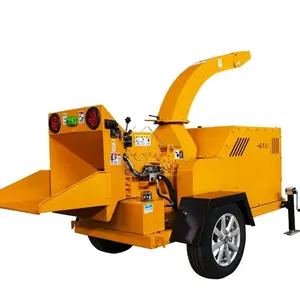


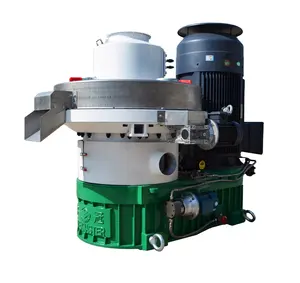



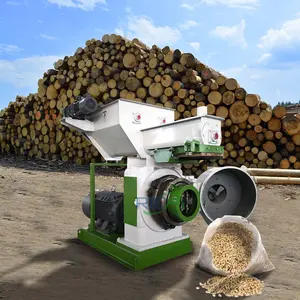

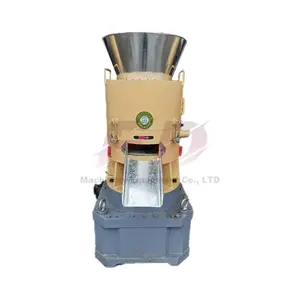


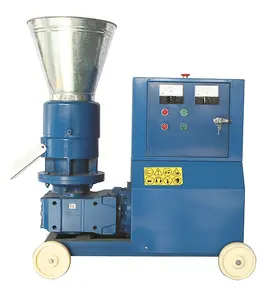















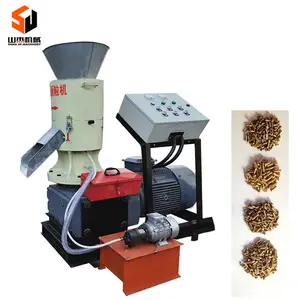
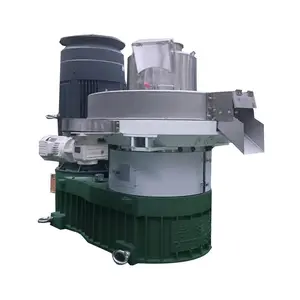
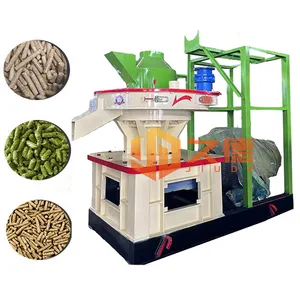












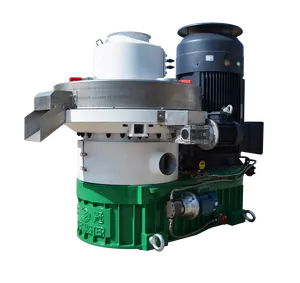

























 浙公网安备 33010002000092号
浙公网安备 33010002000092号 浙B2-20120091-4
浙B2-20120091-4